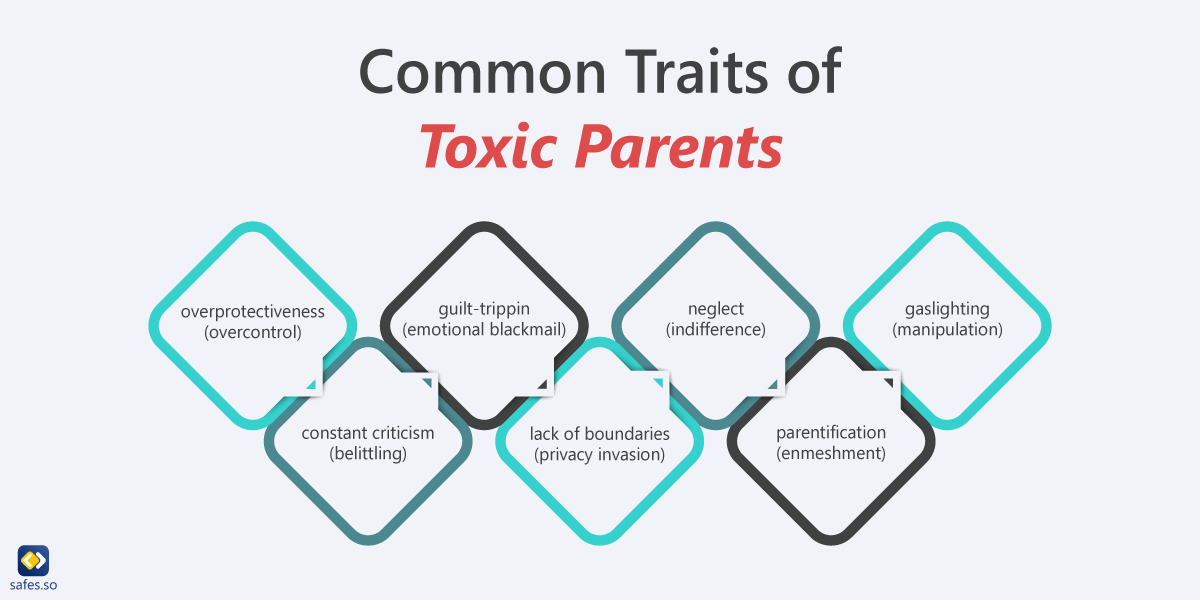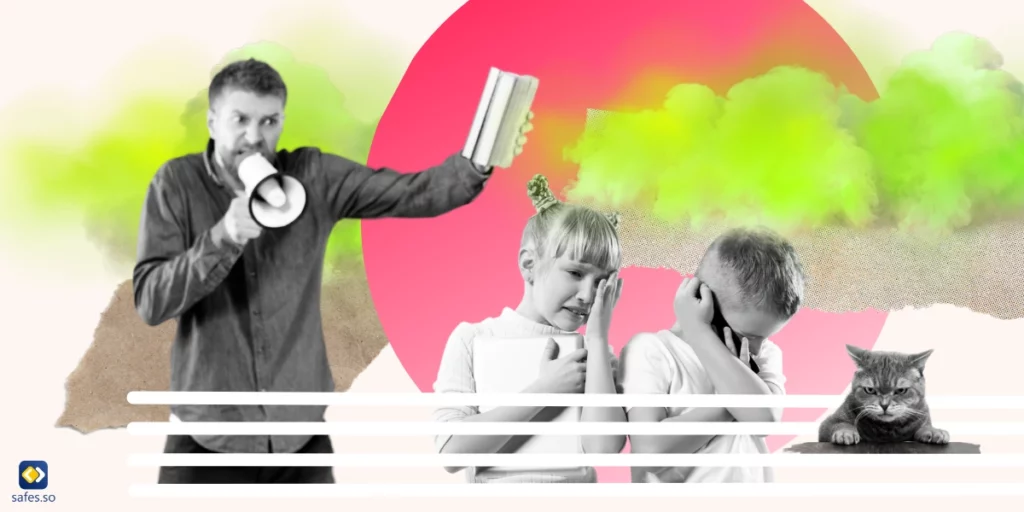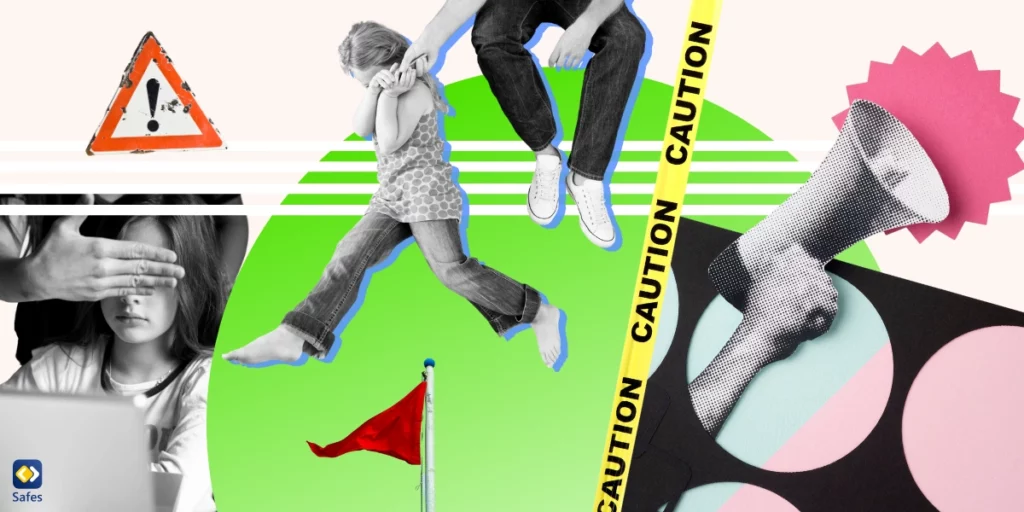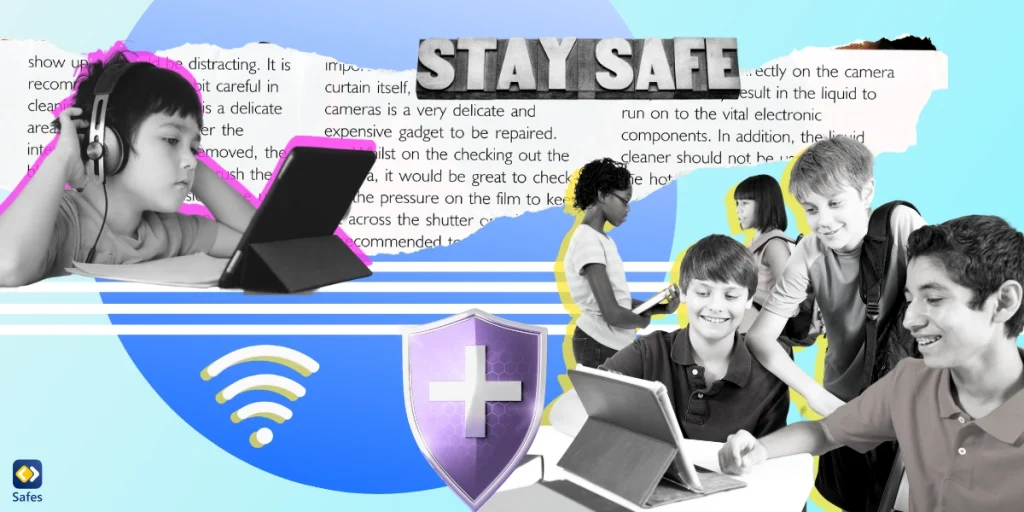Toxic parenting can have a devastating impact on children’s growth and development, and it’s a cycle that can be difficult to break. Toxic parents exhibit harmful behavior towards their children, such as neglect, abuse, or manipulation. The consequences of toxic parenting can be long-lasting and affect a child’s mental and emotional well-being. Parents must identify the signs of toxic parenting and take appropriate steps to break the cycle. In this blog post, we will discuss the signs of toxic parents and guide parents to break the cycle of toxic parenting. We’ll explore practical strategies parents can use to create a healthy and safe environment for their children. By identifying the signs of toxic parenting and taking action, parents can provide their children with the support and guidance they need to thrive.
Download and Start Your Free Trial of the Safes Parental Control App
Signs of Toxic Parenting
Signs of a toxic parent are certain behaviors in parenting that can be emotionally damaging to children. These behaviors include overprotectiveness/overcontrol, constant criticism/belittling, guilt-tripping/emotional blackmail, lack of boundaries/privacy invasion, neglect/indifference, parentification/enmeshment, and gaslighting/manipulation. In the following, we will explain these toxic parents’ signs and traits in detail.

Overprotectiveness or overcontrol: Overprotective or overcontrolling describes parents who micromanage their children’s lives, do not allow them to make decisions for themselves, and do not let them experience natural consequences. This behavior may lead to children who cannot make their own decisions or develop self-confidence.
Constant criticism or belittling: This behavior involves parents who frequently criticize their children and make them feel inadequate or unworthy, leading to low self-esteem, anxiety, and depression.
Guilt-tripping or emotional blackmail: Guilt-tripping or emotional blackmail involves parents who use guilt or manipulation to get their children to do what they want. This can lead to children who feel responsible for their parents’ happiness and are unable to set boundaries.
Lack of boundaries or privacy invasion: This behavior involves parents who do not respect their children’s boundaries or privacy, which may cause children to feel violated and unable to trust others.
Neglect or indifference: Parents who are emotionally or physically unavailable to their children are neglectful or indifferent. This behavior can lead to children who feel neglected, unloved, and unsupported.
Parentification or enmeshment: Parentification or enmeshment involves parents who rely on their children for emotional support or treat them like a spouse or friend. This behavior may lead to children who feel overwhelmed, responsible for their parents’ emotions, and unable to develop their own identities.
Gaslighting or manipulation: This behavior involves parents who distort reality or manipulate their children’s emotions to maintain control. Children who grow up in such an atmosphere may doubt their own perceptions and feel confused, anxious, and insecure.
Impact of Toxic Parenting on Children
Toxic parenting can have both short-term and long-term effects on children. Children with a toxic father or a mother with toxic parent traits may experience short-term effects such as anxiety, depression, low self-esteem, and difficulty with emotional regulation. They may also struggle with relationships at school and with peers, as well as with authority figures.
In the long term, children of toxic parents may continue to struggle with mental health issues such as anxiety, depression, and even post-traumatic stress disorder (PTSD). They may have difficulty forming healthy relationships and struggle with trust and intimacy. In some cases, they may repeat patterns of toxic behavior with their own children.
Toxic parenting can also lead to a lack of self-care, self-love, and self-respect, further perpetuating negative relationships and mental health patterns. It’s crucial for individuals who have experienced toxic parenting to seek support in healing and building healthy relationships. Therapy and support groups can be helpful resources in this process.

How to Avoid Toxic Parenting
To avoid toxic parenting, it’s essential to recognize and acknowledge toxic behavior, set healthy boundaries and respect your child’s autonomy, practice open communication and active listening, work on your own emotional issues and triggers, and seek help from a professional if necessary.
Recognize and acknowledge toxic behavior: This involves being aware of your own behavior and how it may be impacting your child. Pay attention to patterns of overprotectiveness, criticism, guilt-tripping, lack of boundaries, neglect, parentification, and gaslighting. Acknowledge when you make mistakes and take responsibility for your actions.
Set healthy boundaries and respect your child’s autonomy: This means respecting your child’s privacy and individuality, allowing them to make age-appropriate decisions, and not using them as emotional support or treating them as an extension of yourself. It also involves setting clear rules and consequences and enforcing them consistently.
Practice open communication and active listening: This involves actively listening to your child’s concerns and feelings without judgment and responding with empathy and respect. It also means being open and honest with your child about your own thoughts and feelings.
Work on your own emotional issues and triggers: This involves identifying and addressing your own emotional issues, such as past trauma or unresolved conflicts, and seeking support from a therapist or counselor if necessary. It also means being aware of your own triggers and how they may impact your interactions with your child.
Seek help from a professional if necessary: If you are struggling to break toxic patterns or are experiencing significant emotional difficulties, it may be helpful to seek support from a mental health professional. They can provide guidance and support in developing healthier parenting strategies and addressing underlying emotional issues.

How Can Safes Improve Your Parenting?
Toxic parenting can have significant negative impacts on children, and avoiding such behavior is essential for healthy child development. The Safes parental control app is an excellent tool that can help parents avoid toxic parenting by offering features such as website and app blockers, internet filters, real-time location tracking, erotic photo detection, and screen time control.
By installing the Safes app on your child’s devices, you can monitor your child’s online activity and protect them from potential risks, such as cyberbullying and toxic friendships. Additionally, the app allows parents to customize settings according to each family member’s age, which can help prevent exposure to inappropriate content.
Using parental control apps like Safes can help parents set healthy boundaries and respect their child’s autonomy while also promoting open communication and active listening. In the long run, this can help build healthy relationships, foster trust, and promote positive child development. Start your free trial of Safes today and see the difference it makes in your child’s online behavior.
Safes is available for all Android and iOS devices. Use these links to learn more about how Safes works:
- Windows parental controls
- Macbook parental controls
- Parental controls on Android
- iPhone parental controls
Signs Of Toxic Parents: Conclusion
In conclusion, toxic parenting can have severe negative impacts on children, but it can be avoided by recognizing harmful behavior, setting healthy boundaries, practicing open communication, working on emotional issues, and seeking professional help if necessary. Some common signs of toxic parents include emotional abuse, neglect, controlling behavior, and favoritism. However, using parental control apps like Safes can also help parents avoid toxic parenting by offering features such as website and app blockers, internet filters, real-time location tracking, erotic photos detection, and screen time control. By taking proactive steps to address toxic behavior and using technology as a tool to promote positive child development, parents can build healthy relationships and foster trust with their children.
Your Child’s Online Safety Starts Here
Every parent today needs a solution to manage screen time and keep their child safe online.
Without the right tools, digital risks and excessive screen time can impact children's well-being. Safes helps parents set healthy boundaries, monitor activity, and protect kids from online dangers—all with an easy-to-use app.
Take control of your child’s digital world. Learn more about Safes or download the app to start your free trial today!




